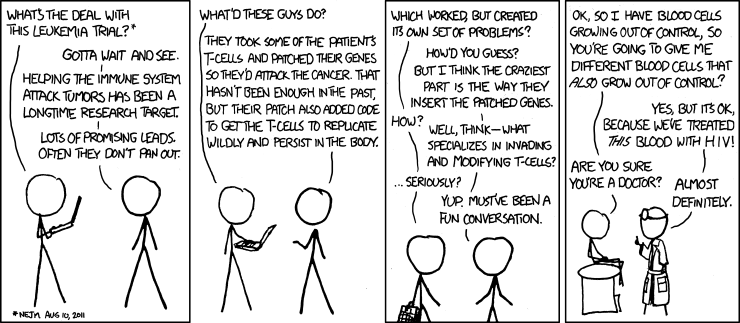(what follows is an essay written for my consultancy business)
There is a tendency for marketers to see their roles as all-seeing strategists who, because they cannot direct the field force to specific action, abdicate responsibility for the nature of sales activity. There is a direct correlation between the distance between the ‘flipchart and the field’ and the likelihood of such an abdication. The negative consequences of this attitude range from the relatively trivial (e.g. time wasted on internal politicking) to the profound (e.g. a failed global product launch). However, this is not all the fault of the marketers. Many (most) pharma companies have imposed strict intra-company communications codes to govern the quality, quantity and access of marketing to sales. The marketer who seeks to take more responsibility is often explicitly forbidden from doing so.
Marketers aren't respected because they have a not entirely unfair reputation for wasting salespeople’s time. Organising time in front of a field force is very expensive prospect. Getting a team off the road and into a room takes actual money from someone’s budget but this is dwarfed by the opportunity cost of time-off-road.
So why don't marketers always get the respect they should?
- It is perceived that they change their minds too often, both at a departmental and individual level
- A one-size-fits-all dictates of strategy do not gel with the quick-fire think-on-your-feet, at-the-coalface world of selling, especially when global strategy is soon to contradict local selling challenges
- From a field force perspective, marketers choose not to see the whole picture (e.g. P1 / P2 detailing) and tend to speak as if they're the only conversation going on in the room, wilfully ignoring the fact that theirs is only one of many voices that salespeople listen to
- They are sometimes accused of being victims of ‘agency capture’; being too enthusiastic about adopting the slick, overly clever marketing tricks that make doctors immediately suspicious
Furthermore, the context of the actual communication with the sales team is often wilfully ignored. Sales teams are expensive, local resources (financed out of national budgets) that must first of all answer to local management priorities. And Marketing is a multi-layered beast that rarely speaks with a single voice. At every level (local, regional, global) it is staffed by clever, but not necessarily wise or smart, ambitious people looking to make a splash. Such people aren't great at taking direction: who got into marketing to be a messenger for the regional / global office?
Marketing-sales communications are thus reduced to a few highly regulated interactions per year: the sales conference. Even here every brand initiative is competing for ‘share of mind’ with other brands, marketing projects, training needs, team-building exercises, regulatory presentations, award ceremonies and so on. The project is also competing with the pet project of the local marketer, which may or may not align with the global or regional initiative, and which may not be at all worthwhile anyway.
Global and regional marketers will always be accused of ‘not understanding the local situation’. There is always a level of specificity you're accused of misreading. If a local marketer based in Reading can be accused of ‘not getting it’ by a representative in Scotland then what chance the global marketer sitting in Japan or Switzerland? And the challenges don't stop once marketing is in the room with the sales team. Most of the more common objections given by salespeople for not following a marketing strategy can grouped under headings of ‘credibility’ and ‘practicality.
Objections over Credibility Issues
- Not relevant to my doctors
- Too complicated (I don't understand it and I'll lose credibility if I stumble)
- Obnoxiously simplistic (I will lose credibility if I take this approach)
- Too aggressive to the competitor (offends those doctors happy with the competitor product)
Objections over Practicality Issues
- The team doesn't the strategy as we’re successful enough (i.e. making budget) without it
- Conflicts with the ongoing expectations that the company has of the salesperson (complying with the sales model, call rate, strategies for other brands)
- Unrealistic in my selling environment (we work primarily in group selling / time-sensitive environments)
Similarly, there are a parallel set of objections that local marketers raise for not following a regional / global marketing strategy. These include, but are not limited to the strategy not being 100% relevant in this market, being too complicated for ‘our reps’, clashing with a local initiative, been tried already, clashes with sales model, regulatory issues, translation issues, being unrealistic in our selling environment (groups, time sensitive), the imagery is racially wrong and insufficient time at sales meetings to explain it properly.
The Dramatic Change process can assist global, regional and local marketers in a number of ways…
- At the very beginning of the process we co-opt sales training. This removes all objections around sales models
- Before meeting the sales representatives we co-opt sales management down to first-line level. This allows issues around sales team priorities, time-off-road for meetings to be highlighted and positively resolved
- Our baseline philosophy overcomes ‘credibility’ issues by fully aligning marketing strategy with doctor needs via Single Patient Focus®
- We offer solutions for all selling environments including group and time sensitive selling
- We set up a cogent and workable relationship between overarching strategy and local / individual sales tactics via Pre-Call Planning exercises. A Dramatic Change programme can meet mulitple needs in a sales meeting context
- We never focus on the competition
- We don't require globally consistent sales materials to give the appearance that a recognisable global strategy is being enacted
- Our programmes are fun. Team-building is a given
